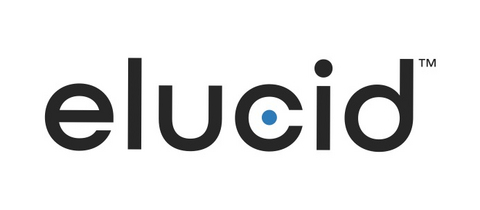Elucid’s PlaqueIQ™ Image Analysis Software Included in EviCore Coverage Guidelines
Elucid’s PlaqueIQ™ Image Analysis Software Included in EviCore Coverage Guidelines
Coverage recommended for coronary CTA plaque quantification and analysis to improve clinical diagnosis and management of CAD
BOSTON--(BUSINESS WIRE)--Elucid, an AI medical technology company focused on providing physicians with a more precise view of atherosclerosis to drive patient-specific therapeutic decisions, today announced that EviCore, a radiology benefit manager, has updated its cardiac imaging guidelines to include coverage of coronary computed tomography angiography (CTA) plaque quantification (see pages 82-24), effective October 1, 2025. EviCore’s updated coverage guidelines for CPT Codes 0623T-0624T could extend non-invasive plaque analysis to more individuals and help physicians gain a clearer understanding of each patient’s coronary plaque. Elucid’s flagship PlaqueIQ™ coronary plaque assessment technology falls within the coverage guidelines.
PlaqueIQ delivers automated quantification and classification of plaque morphology, and is uniquely capable of identifying and quantifying lipid-rich necrotic core, the plaque type most strongly associated with cardiovascular risk.
Share
PlaqueIQ is the first and only FDA-cleared, non-invasive plaque analysis based on objective histology. PlaqueIQ delivers automated quantification and classification of plaque morphology, and is uniquely capable of identifying and quantifying lipid-rich necrotic core, the plaque type most strongly associated with cardiovascular risk. The software is designed to help physicians prioritize and personalize treatment based on actual coronary artery disease, rather than population-based risk. This technology supports physicians in evaluating patients’ risk of future cardiac events, such as heart attack and stroke, and enables the development of personalized care pathways informed by each patient’s individual plaque characteristics.
“EviCore’s updated coverage guidelines demonstrate the increased understanding of the value of non-invasive coronary plaque analysis using Elucid PlaqueIQ,” said Elucid CEO Kelley Huang, PhD. “This important milestone is one more step towards our vision of a future where cardiac care is personalized patient care as opposed to risk factor and population-based care.”
EviCore’s updated commercial coverage guidelines follow a new CMS rule that went into effect January 1, 2025, which doubled the amount paid to hospitals and outpatient clinics who perform cardiac CT scans from $175 to $357.13. This has allowed more hospitals, particularly those in non-urban areas, to be able to offer this service, reducing disparities in care. In late 2024, five of the seven Medicare Administrative Contractors (MACs) issued decisions to extend coverage of Elucid’s PlaqueIQ AI-enabled quantitative coronary plaque analysis software, making it available to over 70 percent of eligible Medicare patients across the United States.
Elucid will showcase the importance of plaque morphology quantification and classification at the lesion level and why morphology based on histology is the gold standard for plaque characterization at the 20th Annual Meeting of the Society of Cardiovascular Computed Tomography (SCCT 2025), in Montréal from July 17-20, 2025.
About Elucid
Elucid is a Boston-based AI medical technology company dedicated to developing technology designed to provide physicians with a more precise view of atherosclerosis (coronary plaque buildup), the root cause of cardiovascular disease. The company’s PlaqueIQ™ image analysis software is designed to help physicians prioritize and personalize treatment based on actual disease, rather than population-based risk of disease. PlaqueIQ includes the only FDA-cleared computed tomography angiography (CTA) algorithm that objectively quantifies plaque morphology validated against ground truth histology, the gold standard for characterization of plaque, as indicated by renowned pathologists. PlaqueIQ equips physicians with critical information regarding the type and amount of plaque in arteries that can lead to heart attack and stroke. Elucid is also pursuing an indication for FFRCT, derived from its plaque algorithm, to help identify coronary blockages and the extent of ischemia non-invasively. For more information, visit elucid.com.
Contacts
Media Contact:
Sam Choinski
Pazanga Health Communications
(860) 301-5058
schoinski@pazangahealth.com
